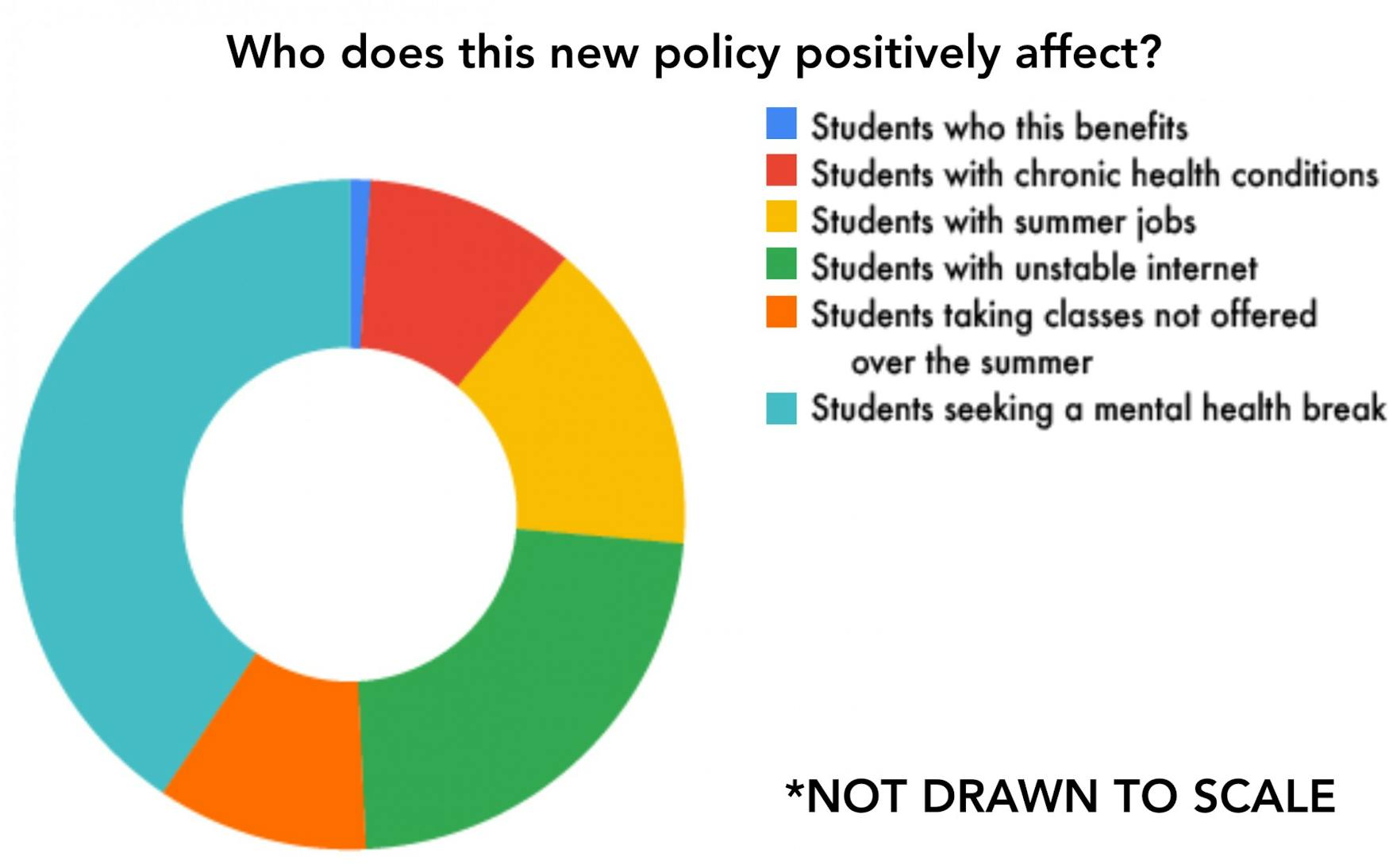The medical underloads policy should be reevaluated to further encompass the varying circumstances of students
On Oct. 7, University Registrar Mark Hewitt sent an email to the Brandeis community announcing a new change in its medical underloads policy in response to the COVID-19 pandemic. From now on, in addition to full time enrollment options with a minimum of eight credits, students who submit a request for medical underload will have the option to enroll in two classes in summer 2021 at no additional charge. While this board appreciates the initiative that the school has taken, we also believe that more should be done, both in terms of the policy itself and the communication of the decision.
Although having the option of taking courses in the summer without extra cost certainly helps some students who are forced to take fewer courses during the fall or spring semester, it is not a realistic option for all students, especially ones who experience medical conditions. Summer is an important time for students either to recover from the highly stressful school semesters or to work. Having the summer courses as the only option if one chooses to apply for the medical underload greatly limits the amount of students who can benefit from this amendment. At the same time, only a limited number of courses are offered during the summer and some of them are completed in a reduced schedule, which does not help students who applied for the underload specifically to accommodate the intensity of a regular semester. This board encourages the University to offer more and better options for students who are in difficult situations in an already challenging time.
In regards to a question about the duration of the policy, Hewitt stated in an email to the Justice that the University will “evaluate the policy over the summer to see how successful it has been in helping students in this situation” in order to determine “whether to extend the policy, or to make other adjustments.” Despite issues with the policy, maintaining this as one option once the pandemic is over would be advantageous to students who must take a medical leave and who would benefit from taking summer classes on campus.
Also, the way this change was presented to the Brandeis community was not clear. Throughout the summer and in the past few months, the University has sent multiple emails regarding accommodations that were made for this unusual semester. Many of them were presented in great detail with the important information highlighted in different ways. Despite the fact that this change of the underload policy will greatly affect students who are in need of the service, the email itself provided no specific information about the modifications other than a link to the related website. This board believes that although this email addresses a fraction of the student population, the University is still responsible for making the information as accessible as possible.
While this board agrees with the direction the school took to aid students and sees this as a positive step to support some students required to take a medical underload, we believe that summer courses are not an ideal solution for all students as it does not take into account all circumstances that students are studying under. The University should provide a greater and improved variety of options to accommodate the current situation. The board also encourages the administration to present important changes in a clearer fashion to the Brandeis community.



Please note All comments are eligible for publication in The Justice.